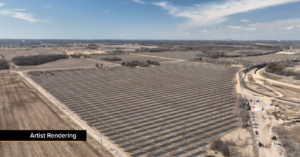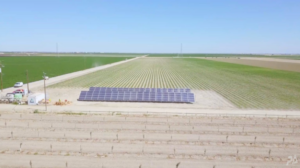Hello friends and supporters of Freeing Energy,
Welcome to another monthly summary of the most important news in clean and local energy.
Cheers,
Bill Nussey and the Freeing Energy Team
More news
Cyberattack forces shutdown of a top U.S. pipeline. Last month, drivers across the eastern U.S. felt the effects of a ransomware attack against the Colonial Pipeline Company, whose eponymous Colonial Pipeline provides 45 percent of all gasoline to the east coast. The company ultimately paid a $4.4 million ransom to the attackers in order to regain access to their systems. This event reminds us of our deep dependence on critical infrastructure and just how much work remains to ensure it is safe from the escalating cyber battles around us. (Canary Media)
2022 Ford F-150 Lightning can power your house for days. The most popular pickup in the U.S. is going all-electric. Ford recently revealed the 2022 F-150 Lightning, a new iteration of their flagship truck model that will eschew internal combustion in favor of an all-electric powertrain. A potential game-changer in the world of EVs, the Lightning boasts a shockingly low MSRP and a robust set of features, including a spacious cargo area under the hood and the ability to power the average home for three days in the event of a blackout. If Ford’s new truck proves to be a success, it could become a turning point for mainstream EV adoption. (CNet)

PosiGen spurs solar ownership and environmental justice for low-income homeowners. Renewable energy generation often dominates conversations about creating a clean power grid, but innovations in energy efficiency play just as important a role in revolutionizing our energy sector. Louisiana-based PosiGen leverages both halves of the residential energy equation to bring savings to low-income areas that have historically been ignored by the solar industry. By optimizing homes for energy efficiency and driving down power consumption — by over 3,500 kWh a year in most cases — PosiGen simultaneously helps low-income communities drop their energy costs while also protecting them from the poor air quality that disproportionately plagues disadvantaged areas. After all of that is said and done, throwing on an 8kW rooftop solar system is just an added bonus. (Canary Media)
G7 agrees to stop international funding for coal. Coal received yet another nail in its metaphorical coffin this month when the G7 nations (Canada, France, Germany, Italy, Japan, the U.K. and the U.S.) agreed to end all future funding for international coal projects by the end of 2021. Moving forward, the next challenge will be to reduce coal use in developing countries, where it provides a quick and cheap means of powering growth. Of course, no progress occurs without pushback. A dozen Republican state treasurers have threatened to pull assets from banks that are withdrawing their support for coal. (Axios)
Nuclear reactions are smoldering again at Chernobyl. Today, decades after an explosion plunged the Chernobyl Nuclear Power Plant into turmoil, fuel-rich material in the basement of the ruined complex continues to power rogue fission reactions. Both exterior and interior conditions have caused the rate of these reactions to fluctuate over time, but recent radioactivity readings in the surrounding area imply that the debris has become slightly more active. Accessing the site of these reactions is out of the question, so researchers are now faced with the daunting task of slowing the nuclear activity remotely before it causes more structural collapse and sends dangerous radioactive dust into the air. (Science Magazine)
More Headlines
Can Southeast EnergyTech meet the moment? (read here)
Inside the GridWise Alliance’s plan for $50 billion in federal funding. (read here)
NREL to hand off management of SolarAPP+ to UL to expedite rollout. (read here)
Aurora Solar aims to power the growing solar industry with a $250 million Round C. (read here)
A new look for rooftop solar panels. (read here)
Our latest podcasts
Subscribe to follow us on popular podcast platforms:
Podcast #058 – Samir Ibrahim: The story behind an affordable solar-powered irrigation system that is changing the lives of smallholder farmers in Africa

Advocates, Innovators and Entrepreneurs, here is a discussion you don’t want to miss. Listen in as Samir Ibrahim, CEO and Co-Founder of SunCulture, shares how his vision for the first affordable, widely available solar powered irrigation system in East Africa took shape, the impact that system is having on lives there and the business challenges he has faced along the way.
Podcast #059 – Steph Speirs: Not everyone can afford solar. Here’s what one visionary company is doing to change that.

Host Bill Nussey catches up with Steph Speirs, CEO and Co-Founder of community solar leader, Solstice, to learn how her team is using a game changing, door-opening mechanism to bring clean energy to people who otherwise can’t afford it. Steph explains why re-defining the energy customer experience is critical to a more inclusive energy future.






